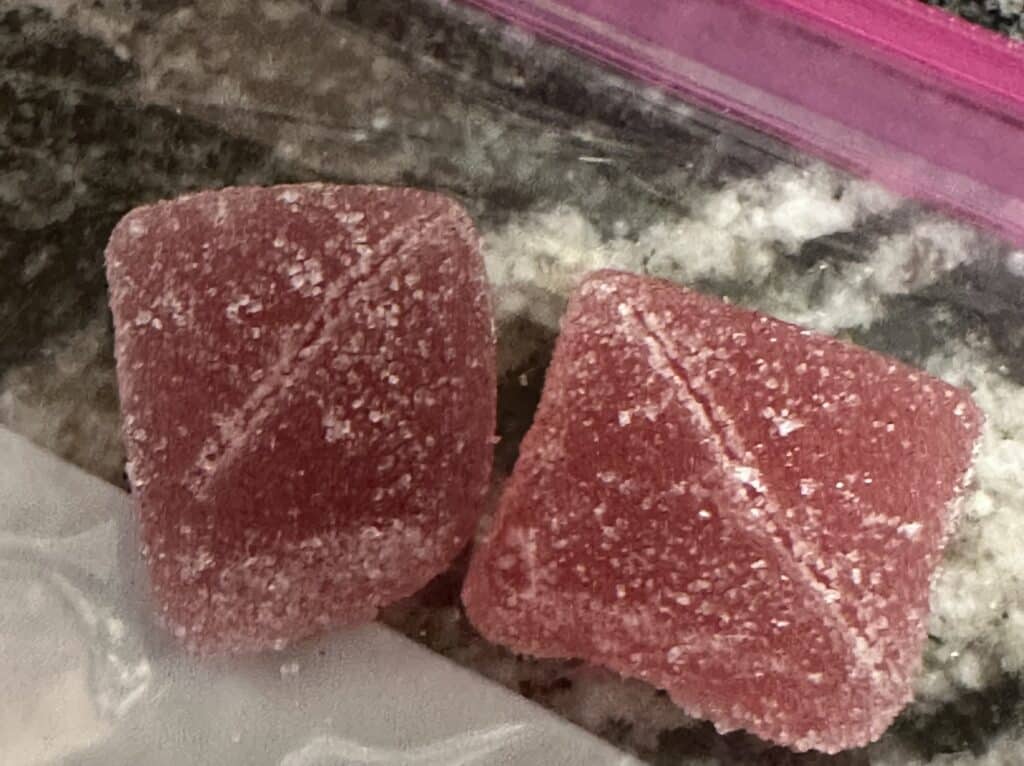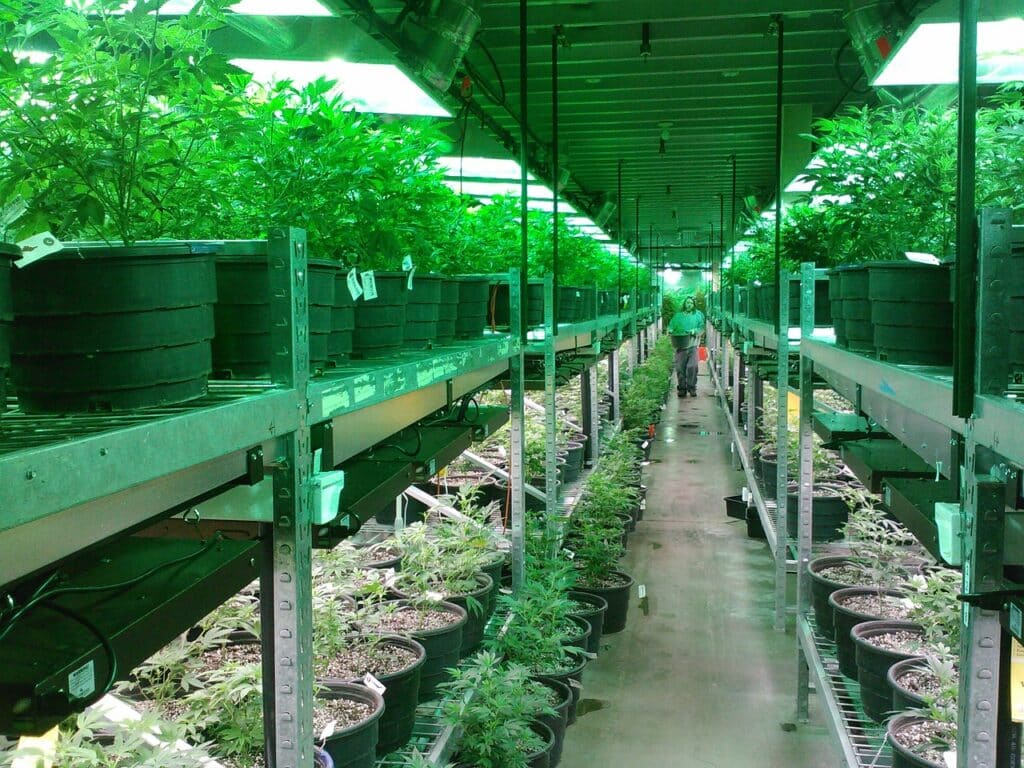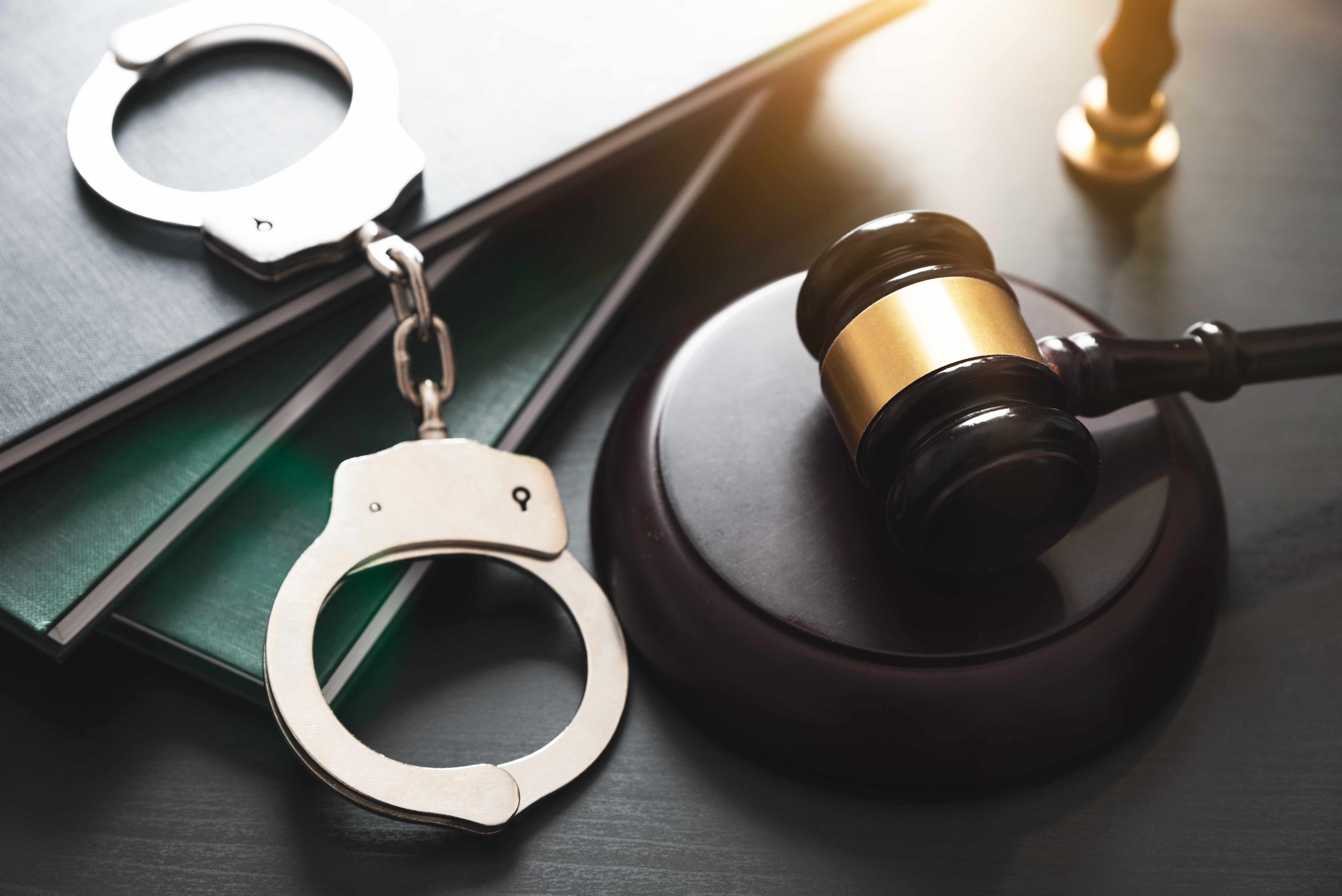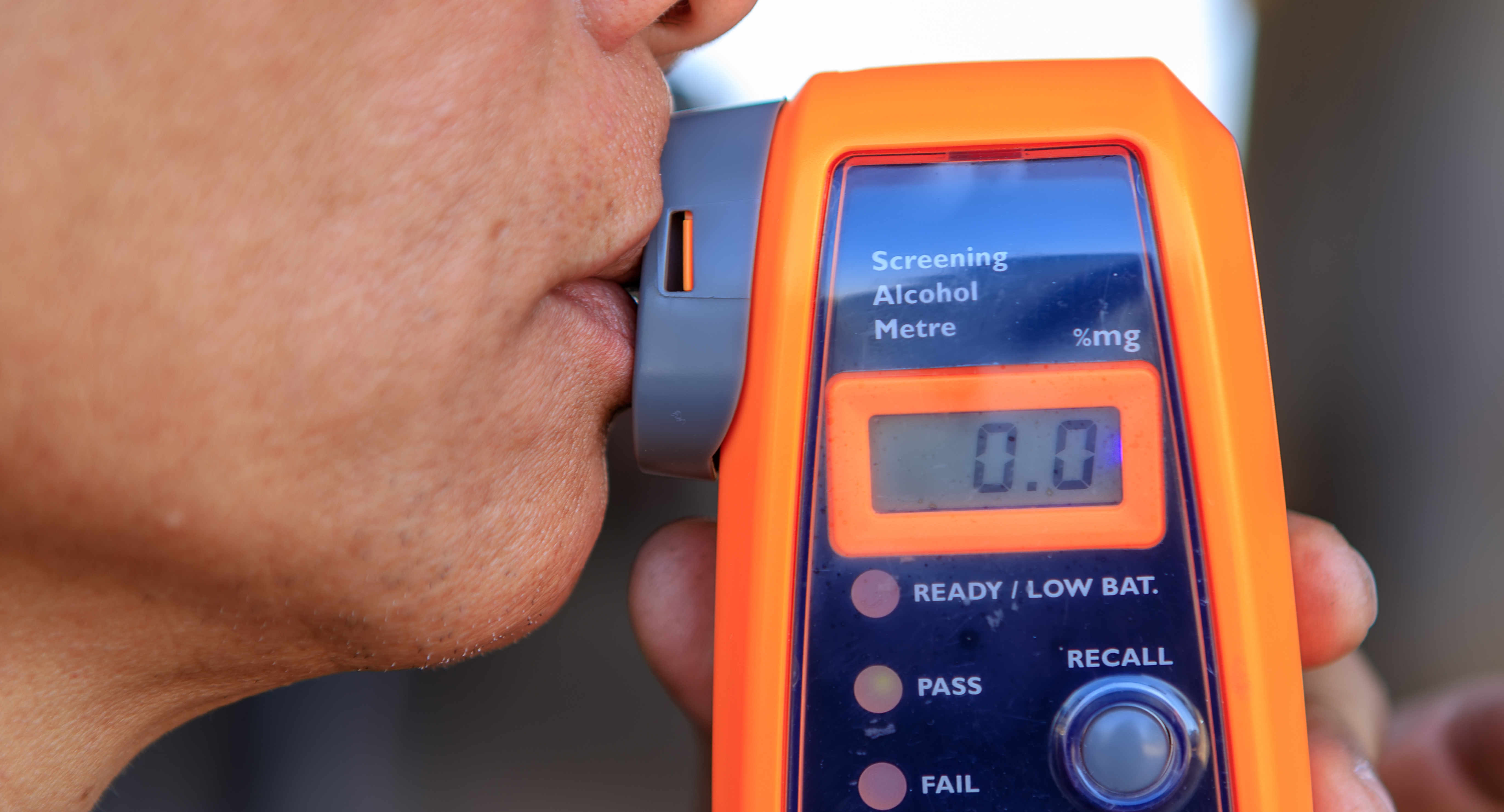- Marijuana is illegal in Texas (aside from approved medical uses), but the sale of hemp products is allowed
- Hemp and marijuana come from a cannabis plant. However, hemp has a lower concentration of THC
- Some cities have passed ordinances limiting the prosecution of low-level marijuana offenders. Outside of those areas, though, it’s likely that if you’re caught with marijuana, you’ll be arrested
“Is weed legal in Texas” is a particularly complicated question. Weed is illegal in Texas, aside from approved medical marijuana programs, and many police departments heavily enforce this. However, hemp-based THC products are legal, as long as the THC potency is below .3%.
Texas’ marijuana laws are determined by the state legislature, many of whom don’t understand the medical, agricultural, and legal ramifications. The laws are confusing and contradictory, because they’re written by people who want to set laws based on their personal beliefs rather than knowledge of the industry.
Some cities have placed measures on their local ballots to limit prosecution of low-level offenders, which have typically been popular with voters. However, the state government has filed a slew of legal challenges to try to get these measures overturned.
Recreational Weed is Illegal in Texas
Recreational weed is not legal in Texas. However, voters in Austin, Bastrop, Dallas, Denton, Elgin, Harker Heights, Killeen, Lockhart, and San Marcos have all passed ballot measures limiting prosecution of low-level offenders.
However, many of these laws prevent prosecution of people carrying less than four ounces. As we will explain in a minute, a single gummy often exceeds that limit.
Elsewhere in the state, enforcement varies by jurisdiction and can be extremely strict. If you’re pulled over and you’re carrying weed, use extreme caution. If you’re driving anywhere with weed in the car, keep it tucked away out of sight.
One of our clients was arrested for possessing a single joint in Comal County. Even if your case ends with dismissed charges, it can still be costly. You may have to post bail, and if you can’t afford to post it in cash, money paid to a bail bondsman cannot be recouped. Not to mention the cost of hiring a good defense attorney to fight the charges for you.
Medical Marijuana is Legal in Texas (Under Specific Conditions)
Eligible Texans have access to medical marijuana through the State’s compassionate use program. However, the program, administered by the Texas Department of Public Safety (DPS), is heavily regulated. Only Texans with certain medical conditions qualify. These conditions are:
- Epilepsy
- Seizure disorders
- Multiple sclerosis
- Spasticity
- Amyotrophic lateral sclerosis
- Autism
- Terminal cancer
- An incurable neurodegenerative disease
Additionally, patients must also:
- Be a permanent resident of Texas
- Be diagnosed with one of the approved conditions
- Must be treated by a physician approved by the compassionate use program
- Have a qualified physician determine that the benefit outweighs the risk
There is no age limit for prescriptions. Patients under 18 may need a legal guardian.
Hemp-Based THC Products are Legal
Hemp-based THC products are not only legal in Texas; they’re a multi-billion dollar industry here. However, the THC potency must be below .3%.
Unfortunately, there’s no field test to determine whether THC products meet the legal standards. If you’re pulled over and police find THC products, you will probably be arrested regardless of whether you purchased it legally.
Texas Lt. Gov. Dan Patrick says legal hemp products are unregulated and dangerous, and that retailers target children (though there is no legal age requirement in Texas to purchase THC products and there is no evidence to support this claim.)
Patrick has said it will be a priority during the 2025 legislative session to get all THC products outlawed.
Patrick says the products are more potent than manufacturers claim. However, when Michael & Associates tested THC edibles at an independent lab, all of the samples met the .3% potency requirement.
Around 8,000 retailers are licensed to sell hemp products Texas, with an estimated $8 billion in annual sales.
WATCH: Ben Michael discusses a possible ban on THC products on Fox 7 Austin
You Can Still Be Arrested for Possessing Legal THC Products
Drug laws in Texas are based on weight. Possessing between two to four ounces is considered a Class A misdemeanor. If you’re caught with four ounces or more, you’ll be charged with a state jail felony. A single gummy or vape cartridge typically weighs more than four ounces. If you’re carrying more than five pounds (the equivalent of 20 four-ounce gummies), you’ll be charged with a third-degree felony. Additionally, any THC product that is not in its natural plant form is considered a “concentrate” or “distillate” which automatically enhances the criminal charge from a misdemeanor to a felony, regardless of the total weight of the product.
Enforcement and Penalties
Many who’ve been arrested for possessing weed say enforcement is significantly higher in Texas’ border towns, or areas within 100 miles of the border. These are areas where newly trained police officers typically start their careers, and many of them will try fishing for information that will give them probable cause to search your vehicle. Use particular caution in these areas, and learn the proper ways to handle a traffic stop before you need them.
If you’ve been arrested for marijuana possession, prosecutors must prove police seized a “usable” quantity of marijuana. This will be relevant in situations where you’re carrying leaf products. The standard for “usable” is usually one half-ounce of flower, or one cigarette weighing at least .38 grams.
However, edible products, tinctures, vape cartridges, and other products that mix THC with other ingredients are measured by total weight, not dry weight. That means that one five ounce gummy could leave you facing jail time.

Charges and Punishments
| Offense | Charge | Penalty |
| Possession of Paraphernalia – Class C | Class C misdemeanor | Fine of up to $500 |
| Possession of Marijuana under Two Ounces | Class B misdemeanor | Up to six months in jail, a fine of up to $2,000, and a driver license suspension of up to a year. |
| Possession of Marijuana Two to Four Ounces – Class A | Class A misdemeanor | Up to a year in jail, a fine of up to $4,000, or both. |
| Possession of Marijuana Four Ounces to Five Pounds | State jail felony | Between 180 days to two years in state jail, and a fine of up to $10,000. |
| Possession of Marijuana Five Pounds to Fifty Pounds | Third-degree felony | Two to 10 years in prison and a fine of up to $10,000. |
| Possession of Marijuana Fifty Pounds to 2000 Pounds | Second-degree felony | Two to 20 years in prison and a fine of up to $10,000 |
| Possession of Marijuana More Than 2000 Pounds | First-degree felony | Up to 99 years in prison (with a minimum of five years) and a fine of up to $50,000 |
Federal Weed Laws
If you’re traveling out of state, it’s important to understand other states’ laws. Marijuana is not legal under federal law. However, just as in Texas, hemp-based THC products with a potency of .3% or less are legal (as per the 2018 Farm Bill).

States Where Weed is Legal
Currently, 24 states and Washington, D.C. have legalized weed in some capacity. The states are: Alaska, Arizona, California, Colorado, Connecticut, Delaware, Illinois, Maine, Maryland, Massachusetts, Michigan, Minnesota, Missouri, Montana, Nevada, New Jersey, New Mexico, New York, Ohio, Oregon, Rhode Island, Vermont, Virginia, and Washington.
68% of Texans Want Marijuana Reform
According to a bipartisan survey by the University of Texas/Texas Politics Project, 68% of Texans said they support reducing the penalty for possession or use of cannabis to a citation and fine. Of that group, 42% say they “strongly” favor it.
A majority of all political groups expressed support for reform, including:
- 81% of Democrats
- 59% of Republicans
- 61% of Independents
Will Texas Ever Legalize Weed?
It may eventually happen, but it’s not likely to happen anytime soon. Lt. Gov. Dan Patrick has vowed to ban all THC products in the state, so until he either opts not to seek re-election or runs and loses, it’s unlikely that any effort at legalization will get serious consideration.
Because marijuana laws are established by elected officials, it’s important to learn where your local candidates stand on the issue before casting a ballot.
2025 Proposed Marijuana Legislation in Texas
Several bills addressing weed possession have already been introduced for consideration during the upcoming legislative session, which started Jan. 14 and runs through June 2. Here is a partial list:
Texas Senate
- SB 3 would ban all forms of consumable THC (tetrahydrocannabinol) from sale in Texas. THC is the psychoactive chemical in marijuana. It was filed by Sen. Charles Perry, a Republican.
- SB 170 would expand Texas’ low-THC medical cannabis program into one that’s more similar to other states’ programs. It would add regulations on packaging, labeling, and testing, and provide guidance for caregivers and retailers. It was filed by Sen. José Menéndez, a Democrat.
- SB 259 would expand the medical marijuana program. The bill is intended to “expand the use of medical marijuana by allowing doctors and science to dictate what conditions and symptoms are eligible for a prescription. It was filed by Sen. Carol Alvarado, a Democrat.
Texas House
- HB 1208 would allow adults over age 21 to possess up to 2.5 oz of marijuana, up to 15 grams of which could be cannabis concentrate. It also would allow individuals to keep up to 10 oz. at home, but over 2.5 oz. would have to be securely stored. The bill would also levy a 10% tax to commercial products. It was filed by Rep. Jessica González, a Democrat.
- HB 1146 would expand qualifying conditions for the state’s medical marijuana program, allowing patients with “a condition that causes chronic pain, for which a physician would otherwise prescribe an opioid,” to access the program. It would also expand the program to any patient with a “debilitating” condition as defined by the Department of State Health Services. It was filed by Rep. Penny Morales Shaw, a Democrat.
- HB 848 would expand the criminal code for cannabis possession and delivery to include marijuana concentrate. It was filed by Rep. Joe Moody, a Democrat.
- HJR 70, a joint resolution filed by Moody and Rep. Ron Reynolds, a Democrat, calls for a constitutional amendment that would require the legislature to “authorize and regulate the possession, cultivation, and sale of cannabis for medical use in this state.”
- HB 1113 would tighten regulations on research and production. It would establish a mandatory permit for hemp researchers, and criminalize cultivating hemp without a license. It was filed by Rep. Briscoe Cain, a Republican.




